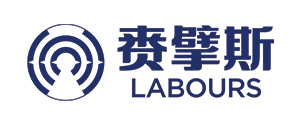Today’s volatile market is a trial by fire for traditional Japanese companies, plagued by snail-paced internal communication and decision making. It’s no surprise that many are calling for reform
The term “VUCA” is an acronym for “volatility”, “uncertainty”, “complexity” and “ambiguity”, defining today’s fast-changing, complex business landscape. But a growing number of lumbering Japanese companies are falling victim to the changing times of the VUCA era.
What is the strategy for switching gears for managerial breakthrough?

Partner
Labour Consulting (LABOURS)
Tel: +86 139 1197 0263
E-mail: zhaorong@laibei.com
In a classic example handled by the author’s firm, company M was an old-fashioned Japanese home appliance manufacturer with declining demand for its products in the Chinese market and increasing localisation of components and parts.
Its production and sales advantages were not what they used to be and, as a result, management began to consider shutting down its China production plants and withdrawing from the market.
But its head office in Japan was unable to promptly issue a firm written decision. On the one hand, as decision maker, the head office needed to weigh factors including closure and liquidation of the enterprise, total or partial layoff and transfer of personnel, and the impact on overall operations of the head office.
On the other hand, the persistent pandemic added to uncertainty of the closure process and upstream/downstream supply chain. The management was unacquainted with China’s legal environment and relevant policies, and local precedents relating to personnel changes for reference by the head office were also few and far between.
Accordingly, company M found itself at a critical juncture, unable to balance the collection and sharing of information with the need to quickly come to a sound decision. In the absence of a clear decision, it was unable to timely convey notice of closure to the affected plants.
THE ‘SPINACH RULE’
When it comes to collecting and sharing information, one term that keeps coming up is the “spinach rule”, or Ho-Ren-So, a common day-to-day management practice of Japanese companies. This mainly manifests as hōkoku (report), renraku (inform) and sōdan (consult). As the first characters of those three words when put together sound identical to hōrensō, the Japanese word for “spinach”, it became known as the spinach rule.
The core idea is that employees must at all times report their work to their superiors, inform relevant departments and consult relevant personnel for how best to proceed.
While the spinach rule ensures all-around communication within the company, it also inevitably leads to excessive communicative steps and a prolonged decision-making process.
It also explains why fleeting opportunities in a rapidly shifting market tend to escape Japanese firms abiding by the spinach rule. This slower response compared with Western or even Chinese companies became especially evident during global market contraction amid the pandemic.
When labour adjustments become part of future strategies, Japanese companies tend to respond to external business environment changes by “endeavouring to maintain employment but reducing working hours”, unlike Western counterparts that often cut directly to downsizing.
Consequently, it proved difficult for the decision makers of company M to rapidly come to a win-win decision that satisfied both its production strategy and workforce stabilisation.
Ultimately, it relied on the author’s firm to propose an efficient and practical solution that aimed to balance legality, rationality and sentimentality, while assisting head office in revising its strategy to smoothly proceed with business reform and personnel adjustments.
PICKING UP PACE
In a VUCA market environment it is no easy task for traditional Japanese companies, many with hundreds of years of history, to break out of their comfort zone and find a viable way to quickly transform. It is encouraging, however, that many have become aware of the issue and are looking to pick up their pace to keep up with the market.
Employment relationships in Japanese companies are evolving with increased mobility. Increased mobility not only means more dynamic economic development, but also that balanced, long maintained employer-employee relationships are being shattered. This leads to difficulty in adapting, as well as a period where labour-management disputes are likely to occur.
Increased employee mobility widens pay gap. Studies show that the pay gap between executives and new employees of Japanese companies used to be about 11:1, while in US companies it could be as great as 475:1. While a smaller pay gap enhances stability between executives and employees, it can also reduce the effectiveness of incentives, making it difficult to spur the motivation of either.
One growing trend in recent years saw many Japanese companies merge with or acquire Western companies, promoting globalisation, which is expected to reduce remuneration differences.
SURVIVING THE TRANSITION
Ensure consistent and effective internal communication. When a traditional Japanese company reforms, each item of adjustment is announced to all employees of one level at a time, creating a momentary information gap. To adapt to the VUCA era, it is imperative they find more direct and efficient ways to communicate.
Bring in outside help. When changes are at hand, the greatest resistance usually originates from within. One of the most prominent characteristics in Japanese corporate culture is that employees are used to asking “why” instead of “how”, which means management must devote considerable time and effort to explaining their reasoning.
A third-party consultant, in addition to providing more intellectual support, is able to provide tailor-made solutions for the company’s strategic changes, harmonise interests, demands and resources on all sides, and ensure its goal of VUCA reform can be achieved as planned.
Zhao Rong is a partner at Labour Consulting (LABOURS). He can be contacted at +86 139 1197 0263 and by email at zhaorong@laibei.com

Room 630, Tower A, Chengjian Plaza
No.18, North Taipingzhuang Road
Beijing 100088, China
Tel: +86 10 8225 5618
Fax: +86 10 6641 5678/6641 3211
E-mail:
marketing@laibei.com
www.laibei.com





















